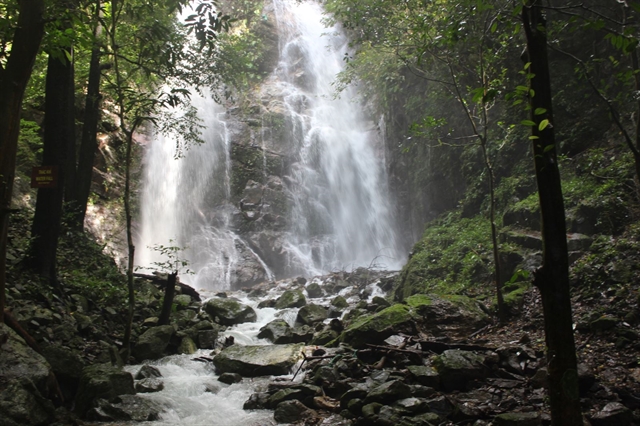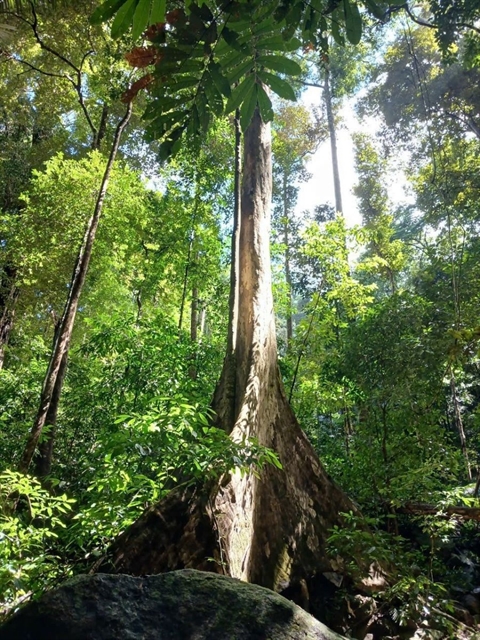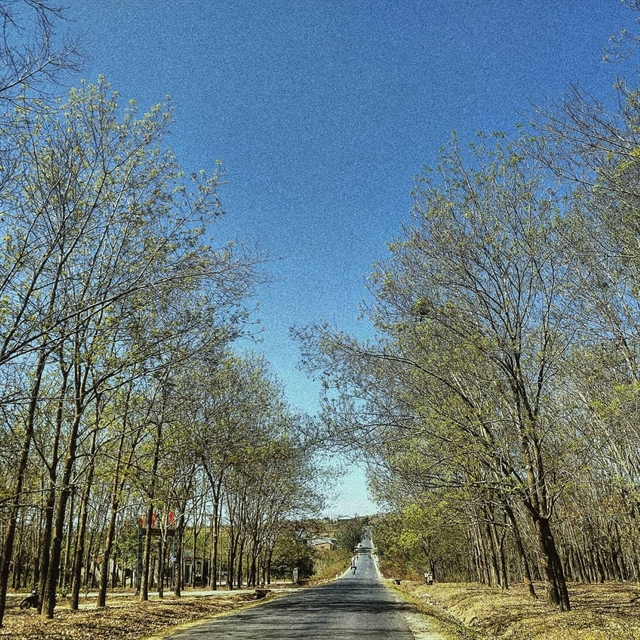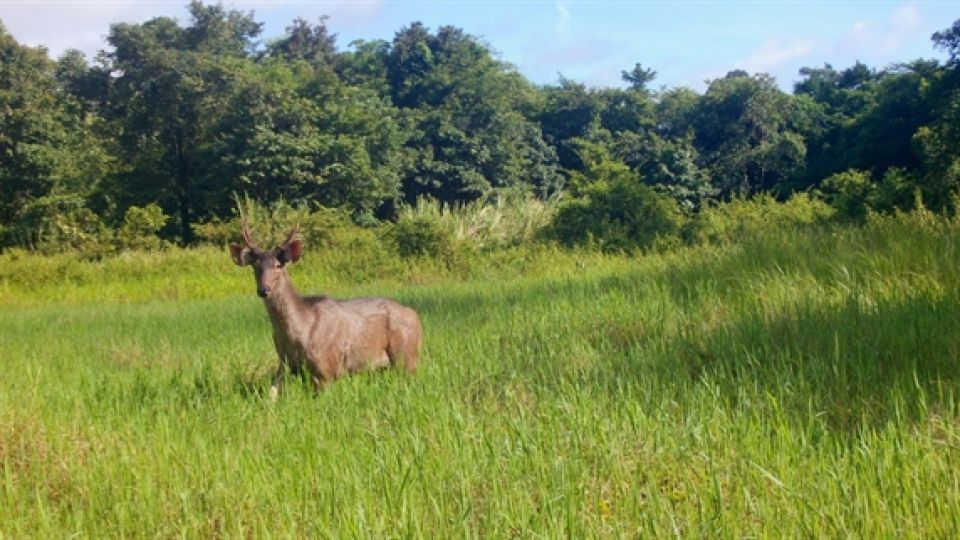October 3, 2024
HANOI – Chư Mom Ray National Park boasts a rare and diverse ecosystem of flora and fauna, offering visitors a chance to connect closely with nature.
As one of Việt Nam’s 10 ASEAN heritage parks, it stands out as one of the three largest and most biodiverse heritage parks in the country. This rich biodiversity and pristine environment contribute to the allure of Chư Mom Ray National Park and the broader Kon Tum Province.
Established in 2002 from the former Chư Mom Ray Nature Reserve, the park spans over 56,000ha across nine communes in Sa Thầy and Ngọc Hồi Districts. Located 30km north of Kon Tum City, it is accessible via National Highway 14C, which connects the Central Highlands with the central provinces.

A waterfall in the Chư Mom Ray National Park. PHOTO: KONTUM.GOV.VN/VIET NAM NEWS
Unique among Việt Nam’s national parks, Chư Mom Ray borders both Laos and Cambodia, adjacent to Virachey National Park in Cambodia and the Nam Ghong Protected Area in Laos. The total forest area in the region is approximately 700,000ha, forming a significant transnational conservation area vital for the preservation of biodiversity in Southeast Asia.
Ranging from 200m to 1,773m above sea level, the park’s varied terrain, interspersed with numerous rivers and streams, supports a rich and diverse ecosystem. This landscape features stunning waterfalls and ancient trees, including precious species like kim giao, trắc, cẩm lai and gụ mật.

Chư Mom Ray National Park is home to about 1,895 plant species from 184 families, including 192 rare species. PHOTO: KONTUM.GOV.VN/VIET NAM NEWS
Statistics indicate that the national park is home to about 1,895 plant species from 184 families, including 192 rare species. It also boasts 425 valuable medicinal plant species, with 18 listed in Việt Nam’s Red Book of Medicinal Plants.
In terms of wildlife, the park has recorded 1,001 animal species across six classes (mammals, birds, reptiles, amphibians, fish and insects), including 112 rare or precious endemic species, such as gaur, bison, wild buffalo, tigers, leopards and various rare birds. Due to its exceptional biodiversity and valuable genetic resources, Chư Mom Ray National Park was recognised as an ASEAN heritage site in 2004.
Currently, the park focuses on promoting tourist attractions, including the Biodiversity Conservation Center and Bar Gốc Village Ecotourism. Visitors can explore highlights such as ancient sấu trees, year-round waterfalls and trekking opportunities to Yên Ngựa Peak (1,200m) and Chư Mom Ray Peak (1,773m). The Khộp Đăk Can forest eco-tourism site showcases a typical Central Highlands deciduous forest and is also home to flat grasslands that support white stork populations. This area features a picturesque lake of over 1,000sq.m, ideal for outdoor experiences and nature exploration.
Additionally, the Safari Ya Book eco-tourism site offers grasslands that serve as habitats for ungulates like deer, bison and gaur. The tourism initiatives prioritise natural experiences, minimising human impact. Visitors are equipped with modern technology to observe wildlife from a distance, even at night.

The road leading to Chư Mom Ray National Park. PHOTO: DIGITICKET/VIET NAM NEWS
The leadership of Kon Tum Province has recently taken action to support the development of Chư Mom Ray’s tourism. This includes raising awareness about legal regulations related to tourism, providing guidance, conducting surveys and building capacity within local communities. Authorities have also implemented strict management of tourism products to mitigate potential issues, along with increased domestic and international marketing efforts to attract visitors.
Đào Xuân Thủy, Director of the Chư Mom Ray National Park Management Board, stated that in 2023, the board was tasked with effective forest protection management, fire prevention and scientific research, as well as public awareness campaigns regarding forest protection and nature conservation.
“Despite facing many challenges, our unit benefits from timely support and direction from all levels. Our staff remains committed to their responsibilities, working diligently to overcome obstacles,” Thủy said.


